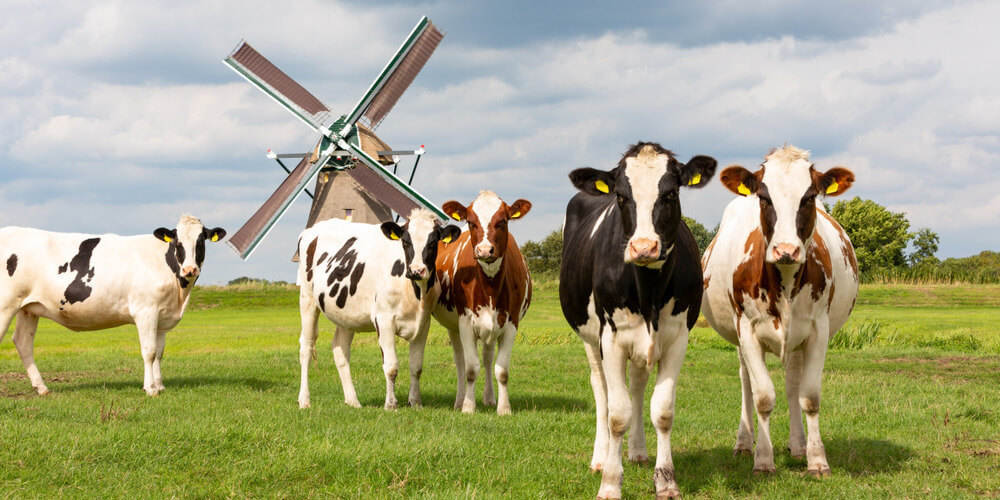CAIRO – Ahmet Kilic is holding his breath waiting for the upcoming Dutch parliamentary vote on Muslim and Jewish ritual slaughter next Tuesday.
Running a store for grocery and halal meat in Amsterdam, opened by his uncle 22 years ago, the business was not the same with many Turks moving out of the city.
“Things are not good,” Kilic told the New York Times on Monday, June 27.
Tallying up sausage, an all-beef variety, and Turkish white cheese for a shopper, he fears his degrading business might get worse if a ban was imposed on halal slaughter in next Tuesday’s vote.
Kilic and Muslim fears started when a tiny, pro-animal party, the Party for Animals (PvdD), proposed a bill to ban ritual slaughter.
The party, which holds two seats in the 150-seat Dutch parliament, said that such ritual slaughter causes unnecessary pain to the animal.
Dutch law required animals to be stunned before being slaughtered but made an exception for ritual halal and kosher slaughters.
The required law amendment, expected to abolish this exception, would affect Holland Muslim and Jewish minorities by banning Islamic halal and Jewish shechita.
The proposed ban is expected to get a majority nod from lawmakers after winning support from the Socialist party as well as the extreme-right Party for Freedom (PVV) led by Geert Wilders that is also likely to support the ban.
Surveys have also shown that more than 60 percent of people questioned said they supported the bill.
“It’s Geert Wilders’s law against halal,” Kilic said.
“I don’t feel good about it. But if someone wants to ban our meat, then we will have to import it.”
Muslims make up one million of the Netherlands’s 16 million population, mostly from Turkish and Moroccan origin.
Compared with a Jewish population of 50,000, the debate has become a focus of Dutch animosity toward Muslims.
Muslim scholars agree that Shari`ah provides a divine law of mercy that should be applied on all Allah’s creations, including animals.
Islam also provides details about avoiding any unnecessary pain.
Secular Holland
Jewish leaders blame the new regulation to an increasingly secular Dutch society which puts religious practices under siege.
“It’s not hard to protect religious freedoms when a society is religious,” he said.
“But when people are increasingly secular, it’s then that it counts.”
Last week, Jews and Muslims wrung a concession out of lawmakers when the lower house agreed to an amendment.
If religious organizations can show that their method of slaughter causes no more pain than industrial slaughtering, they will obtain a license for five years.
“Since there is no number for pain and suffering in industrial slaughterhouses, how can you prove you have less?” Ronnie Eisenmann, a lawyer who is president of the Jewish Community in Amsterdam, said mocking the provision.
“It throws overboard freedom of religion.”
Yet, the ritual slaughter was not the only thing that troubles Dutch Muslims.
Recently, it was declared that the Dutch government is preparing another draft law that would enforce tougher conditions on Muslim immigrants.
The new bill features tougher measures for new Muslim immigrants into the Netherlands, including learning Dutch language and accepting Dutch values.
The government is also working on a new legislation that outlaws forced marriages and imposes a ban on face-veils, which will take effect as of January 1.
Suffering under new regulations, Muslims see the proposed ban as a sign of the growing European hostility toward immigrants and diversity.
Other Jewish experts agree.
“This is not about animal rights,” said Joe M. Regenstein, a professor of food science who runs a kosher and halal food program at Cornell University.
“It’s an invitation to Jews and Muslims to leave.”
Seeing no future for his business in Netherlands without kosher slaughter, Motty Rosenzweig, 45, a shochet, or kosher slaughterer, agrees with Professor Regenstein.
Rosenzweig works in Amsterdam on Monday and in Belgium for the rest of the week. If the ban was imposed, he would probably terminate his business in the Dutch capital.
“I’d no longer have work on Monday,” he said with a bitter laugh.
“We would have to turn to imports.”



